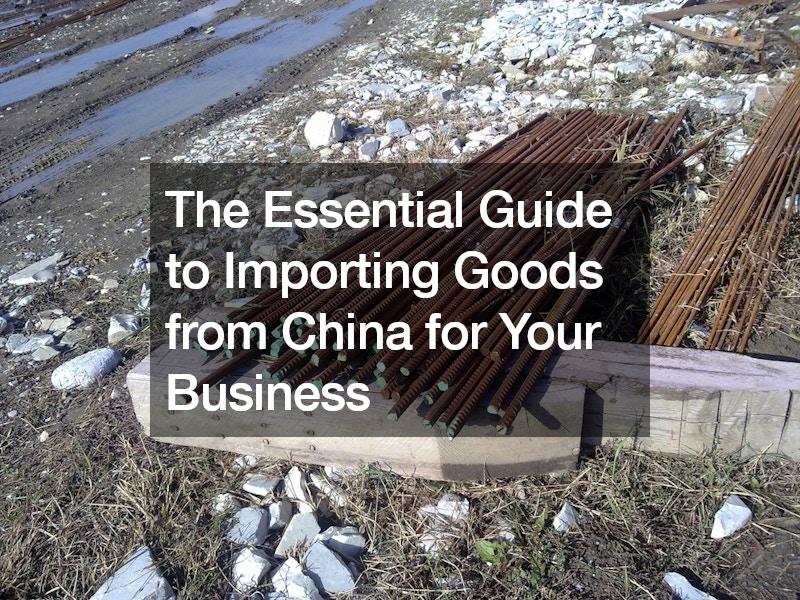In today’s global marketplace, sourcing goods from China has become increasingly popular, especially for eCommerce businesses looking to capitalize on cost-effective manufacturing and production processes. With China’s reputation for cheap labor, low manufacturing costs, and a streamlined import process, importing goods from this manufacturing giant presents lucrative opportunities for businesses of all sizes. However, navigating the complexities of importing from China requires careful planning, thorough research, and a clear understanding of the process involved.
Why Import from China?
China’s dominance in global manufacturing is unparalleled, making it an attractive destination for businesses seeking to source goods at competitive prices. The country’s vast network of factories and suppliers offers a wide range of products across various industries, from electronics and textiles to furniture and machinery.
By importing from China, businesses can benefit from cost savings due to inexpensive labor and production costs, allowing them to remain competitive in their respective markets.
Sourcing Raw Materials
One of the key advantages of importing from China is access to a diverse range of raw materials at affordable prices. Whether you’re manufacturing electronics, textiles, or consumer goods, China offers a vast array of raw materials to meet your production needs. From metals and plastics to fabrics and components, sourcing raw materials from China allows businesses to access high-quality materials at competitive prices, helping to reduce manufacturing costs and improve profit margins.
For businesses looking to buy raw materials from China, it’s essential to conduct thorough research to identify reliable suppliers and ensure product quality. Online supplier directories like Alibaba, Global Sources, and Made-in-China are valuable resources for finding reputable suppliers of raw materials in China. These platforms allow businesses to browse a wide selection of products, compare prices, and connect with suppliers directly.
When sourcing raw materials from China, it’s important to consider factors such as quality, pricing, lead times, and supplier reliability. Requesting samples, conducting product inspections, and verifying supplier credentials are crucial steps in ensuring the quality and reliability of raw materials sourced from China. Additionally, establishing clear communication channels with suppliers and negotiating favorable terms can help businesses secure the best possible deals and build long-term partnerships.
Navigating the Import Process
Once you’ve identified your desired raw materials and established relationships with suppliers in China, navigating the import process is the next crucial step. Importing goods from China involves several steps, including finding products to import, choosing the right suppliers, purchasing products, arranging transport, and clearing customs.
When importing raw materials from China, businesses must ensure compliance with import regulations, tariffs, and customs requirements. Working with experienced freight forwarders, customs brokers, and logistics partners can help streamline the import process and ensure compliance with relevant regulations. These professionals can assist with tasks such as arranging cargo transport, completing customs documentation, and navigating import duties and taxes.
Benefits of Importing Raw Materials from China
Importing raw materials from China offers numerous benefits for businesses, including:
Cost Savings: China’s competitive manufacturing costs allow businesses to source raw materials at lower prices, reducing production costs and improving profit margins.
Quality Assurance: Despite misconceptions about quality, China offers a wide range of high-quality raw materials that meet international standards. By sourcing from reputable suppliers and conducting thorough quality inspections, businesses can ensure product quality and consistency.
Access to Diverse Suppliers: China’s vast network of suppliers and manufacturers offers a diverse range of raw materials, allowing businesses to find the right materials for their specific needs.
Scalability: China’s manufacturing capabilities and production capacity make it easy for businesses to scale their operations and meet growing demand for their products.
Conclusion
Importing raw materials from China presents valuable opportunities for businesses looking to streamline their supply chains, reduce production costs, and remain competitive in today’s global market. By leveraging China’s vast manufacturing capabilities, businesses can access high-quality raw materials at competitive prices, allowing them to enhance their product offerings and drive business growth.
However, successful importing from China requires careful planning, diligent research, and a clear understanding of the import process. By partnering with reputable suppliers, leveraging experienced logistics partners, and staying informed about import regulations, businesses can navigate the complexities of importing from China and unlock the full potential of sourcing raw materials from this manufacturing powerhouse.
.


